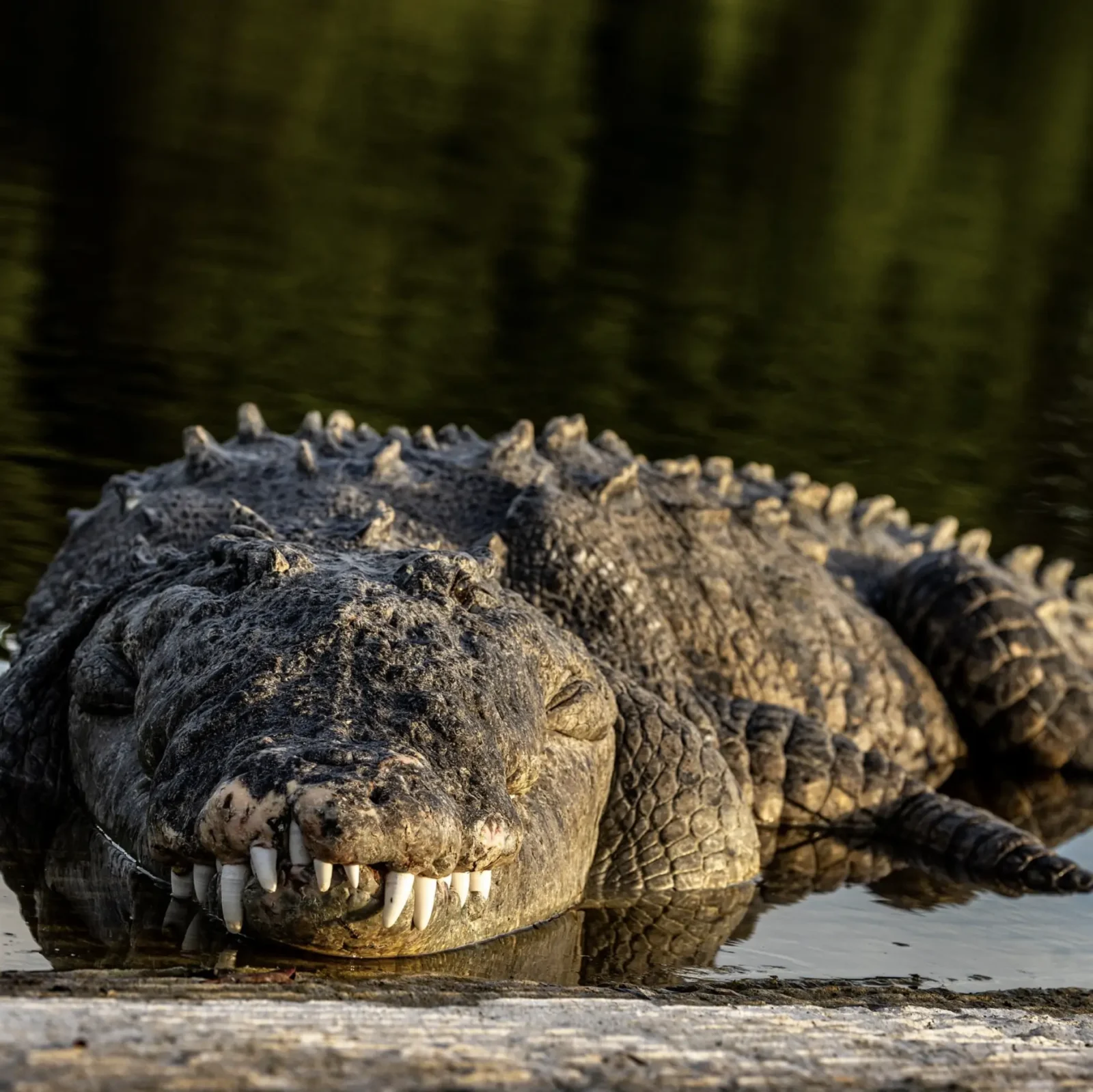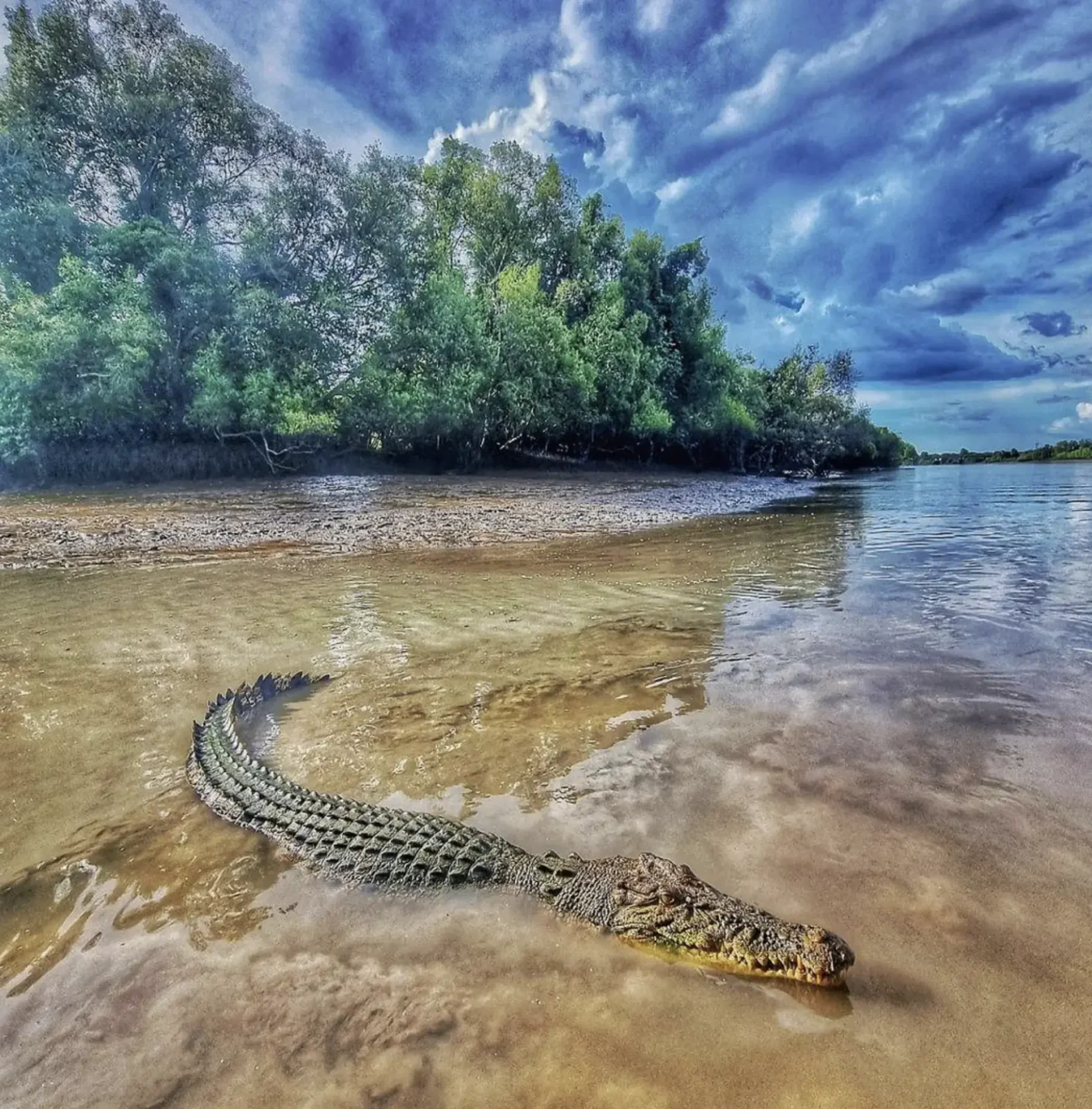Crocodile Lifespan
In Australia, where both freshwater and saltwater crocs roam wild and snappy, their crocodile lifespan is part of what makes them so legendary. But how long do crocodiles live? And what keeps them going decade after decade under that thick hide?Ever looked a salties in the eye and felt like it was reading your soul? That steely glare isn’t just for show. Crocodiles are some of the longest living reptiles on the planet.
Table of Contents
Born Survivors
Let me tell you — when you’ve camped up north during the wet season and you hear a splash in the dark near your swag, you don’t wonder if it was a crocodile. You assume it was, and you stay the heck back. These creatures — from the saltwater crocodile to the American crocodile — have been perfecting survival for over 200 million years, and part of that comes down to one astonishing fact: crocodiles live a long time. But how long exactly?


Snapshot: Average Lifespan of Crocodiles
- Saltwater crocodile (Crocodylus porosus): 70 to 100 years
- Freshwater crocodile (Crocodylus johnstoni): 50 to 60 years
- Captivity vs. Wild: Captive crocodiles can outlive their wild cousins by 10+ years
- Oldest known croc: Estimated over 110 years (in captivity)
Why Do Crocodiles Live So Long?
A croc’s lifespan isn’t just luck. It’s a combination of biology, behaviour and sheer outback grit:
- Slow metabolism: Reptilian cold-bloodedness means crocs burn energy slowly, which helps them age more gradually.
- Top predators: As apex predators, adult crocodiles face few natural predators. Less predation equals longer life.
- Efficient hunters: Crocs conserve energy by waiting rather than chasing.
- Hardy survivors: They’ve been around since the 20th century BCE, part of a long evolutionary history dating back to the age of dinosaurs.
Fun fact: Crocs don’t have a fixed size limit. They keep growing throughout their lives—just slowly. That 5+ metre beast in the billabong? It could be an 80-year-old veteran with an extraordinary bite force, one of the strongest bites of any animal.


The Crocodile Life Cycle
It all kicks off in a muddy nest during the wet season, where mum lays 40–60 eggs and fiercely guards them like a cranky bouncer. After about 80–90 days, the hatchlings start chirping — yep, they make noise — and mum helps dig them out and ferry them to water in her mouth. Cute, right? Don’t get too attached — only about 1 in 100 make it to adulthood. The survivors grow slowly but steadily, hitting sexual maturity around 10–15 years. From egg to apex predator, it’s a long, toothy climb.
Egg
Hatchlings


Young Crocodile
Adulthood
Sexual maturity kicks in around 10–15 years depending on the species. Saltwater crocodiles, the largest crocodiles on Earth, exhibit sexual size dimorphism — males are much larger than females. Mating happens during the wet season, a key time in the breeding season. This is when the apex predators fight for territory and partners, especially in Papua New Guinea, the Northern Territory and even the Solomon Islands.
Wild vs Captivity: Who Lives Longer?
Wild Crocodiles:
- Threats from humans (especially in areas with illegal hunting or habitat destruction)
- Injuries from fights during mating season or over territory
- Crocodile management programs supported by the Northern Territory Government aim to stabilise saltwater crocodile populations
- Influenced by fluctuating water levels during the wet season and breeding season

Captive Crocodiles:
- Live in a protected environment
- Get consistent food, veterinary care and no territorial battles
- Can live to 100+ years (some even older)
- Often studied in laboratory settings for insights into crocodile serum and ageing processes
But captivity isn’t all sunshine. Mental stimulation, space and ethics matter. Australia’s good croc farms and conservation centres keep their animals healthy in body and mind.

Lifespan by Species
Saltwater Crocodile (Crocodylus porosus)
- Longest living crocodile
- Can grow over 6 metres
- Dominates northern Australia from WA to QLD, especially in brackish waters and coastal waters
- Also found in Papua New Guinea, the Solomon Islands, Sri Lanka and the Nicobar Islands
- Also known as the Saltwater Crocodile or estuarine crocodile
- Average lifespan: 70-100 years
Freshwater Crocodile (Crocodylus johnstoni)
- Smaller and less aggressive than salties
- Found in freshwater systems in inland NT and WA
- Rarely a threat to humans
- Has a narrow snout for catching aquatic invertebrates
- Average lifespan: 50-60 years
Nile Crocodile (Crocodylus niloticus)
- Africa’s biggest crocodile
- Found in rivers across Western Africa and down to South Africa
- Average Nile crocodile lifespan: 70–90 years


The Oldest Crocodiles on Record
- Cassius: A massive saltie in Queensland’s Marineland Melanesia, over 110 years old crocodile
- Henry: A captive croc in South Africa, estimated to be around 120 years (but unconfirmed)
These old crocs live in protected environments where there’s a steady food supply and no other males to snap at their tails.
While these veterans are in captivity, seeing their wild cousins is a whole different story. If you’re planning a trip, make sure you’re choosing your croc cruise wisely to see the big ones in the Adelaide River
What Affects How Long Crocs Live?
1. Injury and Predation
Baby crocodiles have it tough. From goannas to birds to fish — even your own kind might snack on you.
2. Habitat and Water Quality
3. Human Conflict
4. Climate and Seasons
5. Diet and Body Condition
Crocodile Conservation and Lifespan
The longer a croc lives, the more it contributes to the ecosystem. Mature crocs play a critical role:
- Maintaining balance in fish, turtle, and baby saltwater crocodile populations
- Creating nesting beaches through repeated use
- Protecting territory that shelters younger crocs and other species
The Crocodile Specialist Group, part of the IUCN-SSC Crocodile Specialist Group, works alongside local programs like the Management Program for the Saltwater Crocodile in the Northern Territory of Australia to support saltwater crocodile populations. Sustainable egg harvesting, protection of wild populations, and education are all part of the approach.
Want to see these long-living legends for yourself? Check out how to join an Adelaide River jumping crocodile cruise from Darwin.
Experience these ancient legends in the wild on a Jumping Crocodile Cruise.

FAQ
How long do crocodiles live in the wild?
Saltwater crocodiles (Crocodylus porosus) live 70-100 years, freshwater crocodiles (Crocodylus johnstoni) 50-60 years.
Do crocodiles live longer in captivity?
What’s the oldest crocodile ever recorded?
Cassius, the giant Australian saltwater crocodile, is over 110 years old and still alive in captivity.
Can crocodiles die of old age?
Yes. But more often they die from disease, injury or environmental factors before they reach their natural lifespan.
Do crocodiles keep growing as they age?
Yes. Adult crocodiles keep growing throughout their life—slowly after they reach maturity. That’s why bigger crocodiles are older.
Popular Articles

Magnetic Termite Mounds Guide Magnetic Termite Mounds are a true standout in this yarn because these seriously imposing high-rises that look like gravestones are without

Tolmer Falls Guide Tolmer Falls has long been one of my go-to recommendations for people exploring Litchfield National Park, looking for a bit of a

Buley Rockhole Guide Buley Rockhole and its waters work their magic on even the most travel-hardened souls, and that’s exactly what caught my eye the

Florence Falls Guide Florence Falls guide is the lowdown you need if you want the real story of one of Litchfield National Park’s easiest –

Explore Wangi Falls in Litchfield National Park Wangi Falls is right at the centre of Litchfield National Park, and today I want to tell you

Kakadu National Park Guide Kakadu National Park is where the Top End of Northern Territory comes alive – and I should know, having spent enough

